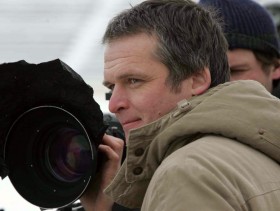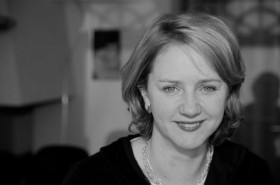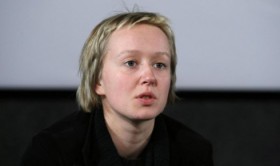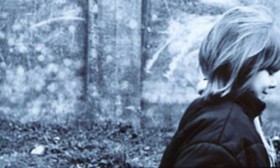


Glawogger – Collected Posts on his Works
”A World of Troubled Beauty…”
HEADLINE
NY Times brought the most precise headline to an article about the films of Austrian filmmaker Michael Glawogger’s impressive work: A World of Troubled Beauty – referring to his trilogy ”Megacities”, ”Workingman’s Death” and ”Whore’s Glory”. (Post 08-08-2012)
AN ART OF CROSSING BOUNDARIES
The IDF (Institute of Documentary Film) website informs that the first retrospective of the Austrian documentarian is taking place in New York at the Museum of Moving Images until April 29. The website of the Museum includes interesting text excerpts from a soon to be published book on Glawogger. Here comes the series intro by the museum:
”One of the most versatile and original talents in contemporary world cinema, the Austrian filmmaker Michael Glawogger has made an art of crossing boundaries, both geographic and formal. He spans diverse, far-flung locations within a single film, often dealing with ambiguous notions of home and foreignness, and moves back and forth between fiction and documentary, sometimes combining and subverting both modes. Glawogger’s career resists classification at every turn, but whether set on the margins of the developing world or in precincts of privilege, his surprising, beautifully photographed films are testaments to his own boundless curiosity and to the endless complexity of the human condition. This retrospective, his first in the United States, includes his widely acclaimed and much debated documentary trilogy on harsh working environments, as well as a selection of fiction features and experimental short films.” (Post 22-04-2012)
MEGACITIES (1998)
Renata Medero, documentary film student at Zelig, Bolzano, Italy, writes this review of a neo- classic:
Unforgettable images… whether you like it or not.
Some films deliver images to never be forgotten, some beautiful, some not. But – what happens when the ugliness is so hypnotizing that one cannot stop watching? “Megacities” is a unique film because it brings toghether issues that by themselves seem irreconcilable. The worst of the megalopolis is brought together: dehumanization, cruelty, despair, all wrapped in a glossy and luxurious manufacturing, which makes the film as beautiful as mercyless.
The aesthetization of the poverty is not a new tendency in some films of the international scenario, but “Megacities” is tricky. Has a spotless photography, where the flawless and somewhat mysterious composition of images forces the spectator to keep watching the movie even when he might not want to.
And then, the big lettered question: Do I have the right to see this? What right did the director had to film it? And there is still another ethical issue to deal with: a group of russian street kids reveal that they were paid to be filmed. Does that mean that they were paid for showing the inhuman condition in which they live? How maquiavelic could such an idea be? In any case this film is not advisable to animal right activists, good consciences and weak hearts!
I think it is a masterpiece, because it achieves the impossible even though I don’t agree in some of the director’s views of the situations. (Post 26-04-2008)
MAGNIFICENT 7 2012
… And for closing – Michael Glawogger, the Austrian director of many controversial films. This time he cares about prostitutes in his travel to Thailand, Bangladesh and Mexico. As with his previous globalisation films (”Megacities” and ”Working Man’s Death”) the camerawork is done by Wolfgang Thaler, who excellently interprets each location in its own way. ”Whore’s Glory” is done with sensitivity and respectfully tells us about prostitutes who offer moments of love. It is a stunning film that for sure will create debate about what documentaries can and should do – as all 7 films it is for the big screen, and for the social and artistic experience. (Post 13-01-2012)
AT DOCSBARCELONA 2013
… The job given to Michael Glawogger at DocsBarcelona was very simple: find 7 clips and talk about them in your master class. He found 6 and surprised this blogger, who thought he knew the work of the Austrian filmmaker, by showing ”Haiku”, a film he made in the 1980’es, wonderful in editing and – as he said – a film that includes the theme that he was to develop a couple of decades later: work. To prove that, he showed a sequence from ”Workingman’s Death”, that has a dialogue between workers about prostitutes, the theme of the director’s latest work, ”Whore’s Glory” (photo), that is in the official selection at the festival.
Glawogger is not only an important artist, he also has the gift to be able to talk precisely about what he does, and how he approaches his characters. And he does that in a provocative way that is perfect for a master class as well as a Q&A session like the one he performed yesterday in the new Filmoteca in Barcelona. The audience wanted to know how he got the prostitutes in ”Whore’s Glory” to participate, how his research was done, if he paid them to take part (yes, of course), how much the film’s budget was (2 mio.€ the answer was), practical as well as ethical question.
Masters come to Barcelona, last year it was Viktor Kossakovsky, this year he was followed by Michael Glawogger. For sure, two of the best documentary (if not the best) artists of our time. (Post 01-06-2013)
CATHEDRALS OF CULTURE (2014)
6 3D documentaries by Wim Wenders, Michael Glawogger, Michael Madsen, Robert Redford, Margreth Olin and Karim Ainouz. Executive producer: Wim Wenders. Each film is 26 mins. long. Subtitle: ”If Buildings Could Talk” and this is where the overall problem lies if the idea is that they have to be watched as one film with six locations… I saw it like that at the press screening tuesday and this is how the 6 are to be screened at the Copenhagen Architecture Festival x Film, with one small break… Michael Glawogger’s part ”The National Library of Russia” is close to my heart as educated librarian (in the last century), and because this is magic St. Petersburg, where you have this fantastic building in the middle of the city, on Nevski Prospekt, where you with Glawogger in a few seconds leave modern times and enter a place full of people and books and index cards and kilometers of bookshelves and students at their small study tables and old ladies sitting in their small booths writing on their cards or taking books out to be transported to the reader in the reading room. Glawogger avoids the ”I am a building”. Instead he lets voices and texts come out from the images – Dostojevski of course, Bunin, Brodsky and many others – unfortunately difficult to understand it all as there are Russian voices in the background with an English voice in the foreground that only gives some of the texts, if I got it right. Visually this film is excellent, there is a flow, a constant movement, great close-ups, small stories within the overall story, Glawogger and his cameraman Wolfgang Thaler succeed to convey their fascination fully. A great visit! (Post 20-03-2014)
MICHAEL GLAWOGGER 1959-2014
Shocking news – Michael Glawogger has died from malaria during the shooting of a film in Africa. So young! My deepest condolences to family and the many, who were close to him.
In June last year I had the privilege to moderate a masterclass with Michael Glawogger. It happened in Barcelona at DocsBarcelona, where his ”Whores Glory” was shown. I had recommended the masterclass to happen after meeting the director at the Magnificent7 festival in Belgrade 2011, where he stayed the whole week of the festival, took everyone by heart with his warm generosity and ability to inspire, sharing his experience as a filmmaker, who never compromised and gave us, as he expressed it himself, a description of ”la condition humaine”.
In connection with a retrospective in New York, NY Times characterised his impressive work as ”A World of Troubled Beauty” – referring to his trilogy ”Megacities”, ”Workingman’s Death” and ”Whore’s Glory”. Films that will stay in film history.
A couple of quotes from his hand, taken from the many texts about Glawogger: ”I start filming when I sense that nothing is exotic any longer. But common. Not before.”“For me documentary filmmaking is a very special kind of life and I come to see places in a way that I could not see by just travelling, and I would also feel lost travelling without the purpose of watching things in order to work with them, since that makes sense to me. If I weren’t a filmmaker, I wouldn’t take that time for travelling and watching, so that makes me very happy. The people I meet for these films, that make them very happy…”

Take a look at the photo, see his smile, see his calm and open invitation to ask whatever question relevant to the art of filmmaking that he mastered so wonderfully – most recent with the film from the National Library in St.Petersburg. (Post 24-04-2014)



